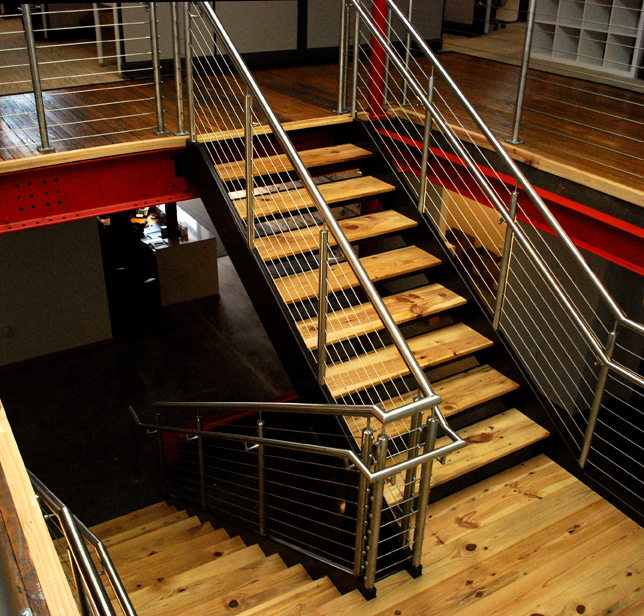The Edge Office Building
399 Edgewood Avenue, Atlanta
Atlanta-based architecture and green building consulting firm The Epsten Group used the Athena EcoCalculator to pursue the LEED LCA pilot credit and validate the environmental benefits of renovation versus new construction at their new office near the Martin Luther King Jr. Historic District.
Year: Completed 2011
LEED rating: LEED Platinum
Architect: The Epsten Group, Inc.
Built in 1946, the 2,800 square foot structure at 399 Edgewood Avenue in Atlanta’s Martin Luther King Jr. Historic District was in a dilapidated state in 2009 when the decision was made to renovate and add on to it. Now one of the greenest buildings in the State, the 9,000 square foot office building is occupied by The Epsten Group, an architecture and high performance building consulting firm, and Dynamic Dish, a vegetarian eatery. This adaptive reuse of a 1940’s building reflects the owner’s commitment to sustainability on all levels, and incorporates several technologies that both conserve natural resources and enhance the daily lives of its occupants.
The project team for The Edge Office Building had to consider the impact of retaining or replacing several existing building components, including the roof deck and joists, the second floor assembly, and exterior walls. The Athena EcoCalculator helped the team weigh their options using a metric based on environmental impact, not just immediate cost.
Project leader Dagmar Epsten explains: “The EcoCalculator helped us quickly conceptualize the environmental impacts of our design decisions in renovating an existing building. The EcoCalculator is a pioneering leap into the standardization of Life Cycle Assessments and we were happy to participate in USGBC’s LEED Pilot Credit for Innovation in Design for LCA using it.”
Sustainable Features:
- green roof
- high efficiency fixtures and waterless urinals
- shower facility and indoor bike racks to accommodate employees and visitors who cycle
- daylight harvesting system dims interior lights to save energy when natural light is sufficient
- low VOC paints and finishes
- use of materials with recycled and reclaimed content
- 5kW Photovoltaic membrane offsets some electric consumption
- rapidly renewable and salvaged finish materials, including insulation made from soy-based spray foam; custom shelves and work surfaces crafted from wheatboard; maple hardwood floors salvaged from a closed textile mill in South Carolina; ceramic tile in bathroom with 45% recycled content
Photo courtesy of The Epsten Group, Inc.






